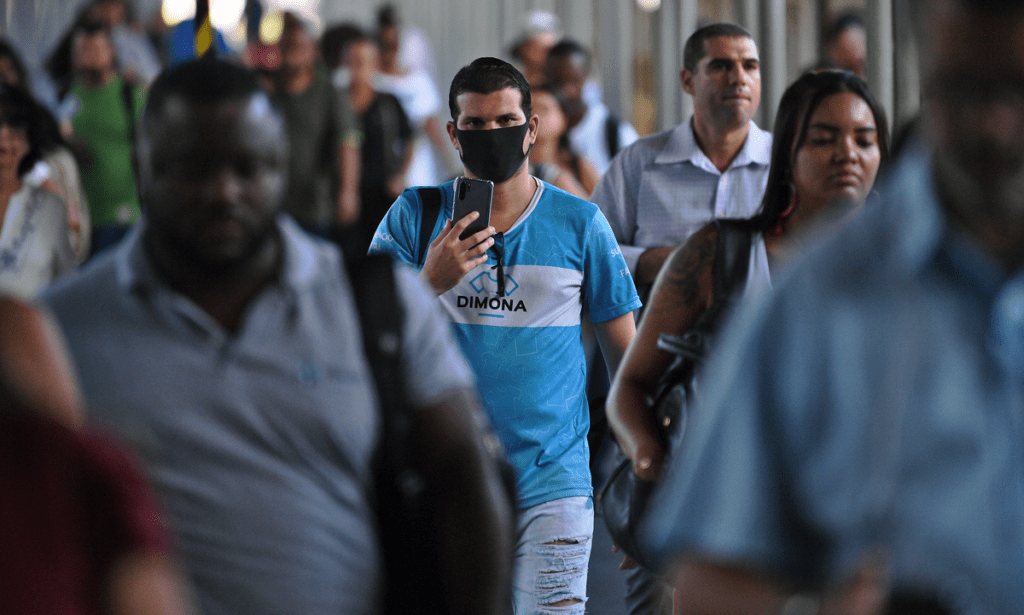RIO DE JANEIRO, BRAZIL – The growing number of coronavirus cases in Brazil is worrying neighboring governments about the repercussions of the Brazilian crisis on their nations.

On Twitter, Guillermo Sequera, Paraguay’s health surveillance director, said that “if Brazil sneezes, we get pneumonia”.
The criticism was published last Friday, May 1st, when the local Ministry of Health reported that of the 67 confirmed cases of Covid-19 that day, 63 were from people who had come from Brazil.
In March, the local army had already dug a trench in the main entry route to the border city of Pedro Juan Caballero at the government’s request.
The aim is to prevent people coming from Brazil on foot from entering the country through Ponta Porã (Mato Grosso do Sul State). The border has been closed to vehicles since the beginning of quarantine in the country on March 10th.
In total, Paraguay has 370 confirmed cases of Covid-19 and 10 deaths, according to data from the Ministry of Health, a much lower number than Brazil – more than 101,000 infections and 7,025 deaths by Sunday, May 3rd.
In Argentina, the northern provinces of Misiones and Corrientes are on alert. Although the border is closed to common transit, cargo trucks are allowed to pass.
They come in, drop one load, and pick up another. In Misiones, there are 12 confirmed cases of the disease, and one of them is that of a trucker who, on returning from São Paulo, infected his wife. The driver died in Argentina, according to an Associated Press report.
Laureano Rodríguez, editor-in-chief of the newspaper Primera Edición in the city of Posadas, the province’s capital, said: “the news of the increasing disease in Brazil alarms us because we are one of the country’s gateways”.
Both in Misiones and at the most transited border post between Brazil and Argentina, in the city of Paso de los Libres, the temperature of each trucker is checked, as well as that of those repatriated by land.
In an interview with the local press, Argentine President Alberto Fernández said that Brazil was of great concern to him: “Particularly the truck traffic coming from São Paulo, where the level of infection is extremely high. In my opinion, it seems that the Brazilian government is not taking the pandemic seriously. This worries me because of the Brazilian people and because the virus can be carried into Argentina”.
Brazilian Ambassador to Argentina Sergio Danese wrote an article in La Nación, suggesting that Brazil and Argentina should show solidarity when tackling the crisis. He also said that it was not right “to point the finger at each other while we have a huge challenge to overcome”.
Danese also argued that the fact that countries are neighbors does not necessarily imply that a large number of cases may arise in Argentina because of Brazil. To this end, he provides examples: Portugal is much less infected than its neighbor Spain, as well as Canada, which shares a long border with the US, one of the countries most affected by the pandemic.
Portugal, however, has implemented strict isolation measures due to the precariousness of its intensive care system and the terrible news of the outbreak in Spain and Italy, while Canada imposed a 14-day quarantine requirement on anyone arriving in the country in March. Anyone failing to comply with the rules could be fined or serve a month in jail.
At the time, Prime Minister Justin Trudeau said that anyone who did not feel safe to go to work should stay at home. On April 9th, a survey released by the Ipsos institute showed that 85 percent of Canadians were in favor of social distancing measures and the penalties proposed by the government.
Source: Folhapress

